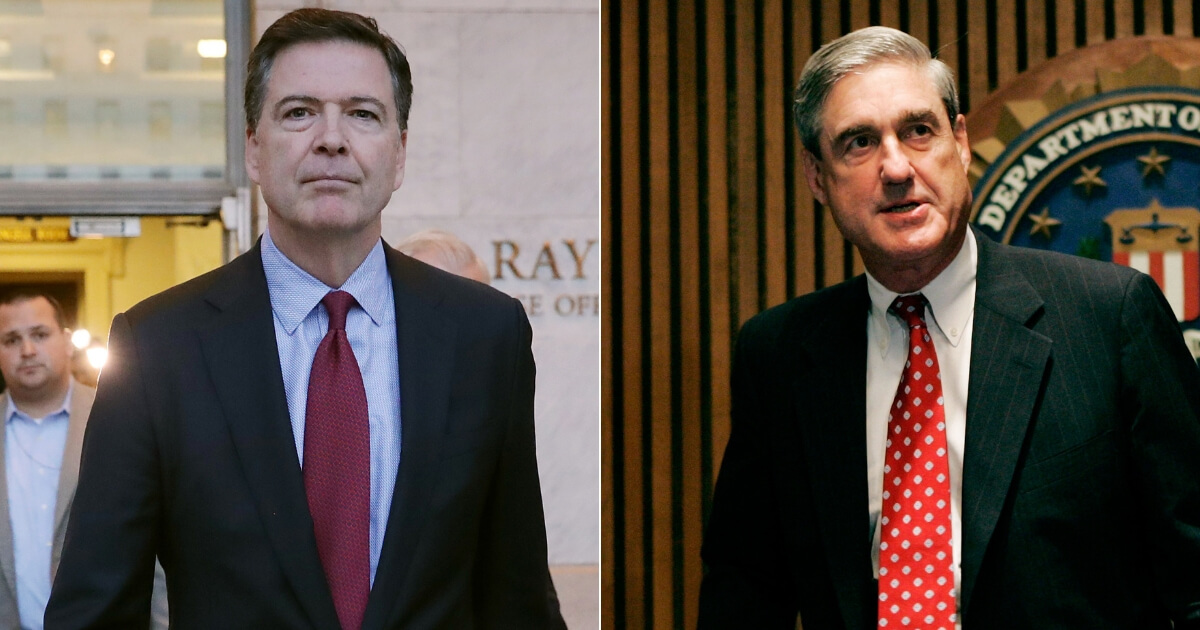We’re finally getting some real collusion news that may alter the direction of Robert Mueller’s investigation, or hobble it altogether.
Former top FBI lawyer James Baker, the subject of a criminal investigation surrounding his alleged leaks to the media, revealed to lawmakers in October that he had a personal hand in the warrant the FBI received for surveillance of Trump campaign aide Carter Page under the Foreign Intelligence Surveillance Act.
The former FBI lawyer himself admitted it was an unusual move.
The transcripts of the interactions between congressional investigators and Baker have yet to be released to the public, but Fox News reported it was able to verify some of the details.
Baker reveals he didn’t want to get involved in the FISA process too close to the end, because once the warrant is ready for the FBI director’s certification, it’s tough to make changes.
TRENDING: GOP Lobbyist Has ‘Evidence’ That Could Reveal Why DNC Analyst Seth Rich Died [RETRACTED]
“So I wanted to see it when it was gelled enough but before it went through the process and before it went to the director,” Baker said. “I wanted to see it and I wanted to read it because I knew it was sensitive.”
When pressed by lawmakers about his decision to get involved in the process — an “abnormal or unusual step,” as the questioner put it — Baker simply said, “I wanted to make sure that we were filing something that would adhere to the law and stand up over time.”
The answer makes it sound routine, but clearly it wasn’t.
As fishy as that is, there’s another explanation Baker owes to the American people.
Is the Robert Mueller investigation fatally tainted?
According to The Hill contributor John Solomon, there were two separate occasions when Baker helped a Hillary Clinton lawyer and a journalist get politically charged information to the FBI investigative team.
At one point, Solomin writes, Baker took information about Trump and Russia to the investigators from Michael Sussmann, a lawyer for the Democratic Party and the Clinton campton.
At another, according to Solomon, Baker move an updated version of the infamously incorrect Christopher Steele dossier into the Russian team’s hands.
The original of this dossier is the same one former FBI Director James Comey confirmed was never verified, according to The Hill. Despite that, the author was used as “source #1” in the Carter Page wiretap.
“At the time Baker got the copy of the dossier, Steele already had been terminated by the FBI as a confidential human source in the Russia probe for violating bureau rules, lying about his contacts with the news media before the election,” Solomon wrote.
RELATED: There Was One Thing Notably Missing from the Stone Indictment: Russian Collusion
“So, at a time when the FBI was supposed to have severed its ties with Steele, Baker essentially functioned as a document courier. FBI memos I reviewed confirmed the version that Baker got from Corn was different from the one the FBI had from Steele before his termination.”
It didn’t take long for President Donald Trump to pick up on this news.
The journalist who provided the Steele documents to Baker, David Corn, isn’t exactly what we would consider an impartial reporter, either. Take a look at some of his Trump coverage:
“How Republicans Normalized Donald Trump’s Racism” – Mother Jones, Jan. 12, 2018
“We Already Know That Trump Betrayed America” — Mother Jones, July/August Issue, 2018
“What We Still Don’t Know About Donald Trump” — Mother Jones, Nov. 4, 2016
It appears as though Corn already has made up his mind about Donald Trump, which makes Baker’s acceptance of his materials even more suspicious.
This isn’t the first storm to rock Robert Mueller’s investigation, but it may be the last.
Americans can only take so much. With the anti-Trump texts from Lisa Page and Peter Strzok, the Christopher Steele debacle, the questions surrounding FISA warrants, and the new revelations about James Baker, the Mueller investigation may soon be looking at the straw that will break its back.
We are committed to truth and accuracy in all of our journalism. Read our editorial standards.




